 Artist: Quincy Jones et al.
Artist: Quincy Jones et al.
Title: In The Heat of the Night – soundtrack to the motion picture
Label: United Artists 91256
Release Date: 1967
Genre: Soundtrack
Purchased: Exclusive Records, Milwaukee, Wisconsin, July 17, 2010
Price: $5.99
Vinyl Condition: Very Good
I first rented the VHS of In The Heat Of The Night in the early 80s. Being a Ray Charles fan, I immediately searched my 30 or so Ray Charles records looking for the title track on some compilation or late 60’s ABC-Tangerine release. But I found nothing.
This was before the days of eBay, and even before the days of CDs. This was back in the days of the Phonolog. And it, the Phonolog, the grand yellow and black bible of music at the time, told me it was out of print. To get a copy of In The Heat of the Night, you had to find a used copy of it at a record store, thrift store or garage sale. Along with other Holy Grails, the “In The Heat of the Night” soundtrack was filed away in some abscess of my brain.
In 1997, Rhino Records released the box set, Beg, Scream & Shout: The Big Ol’ Box of 60’s Soul. It was 144 songs by 144 different 60s soul artists. The one song they chose to represent Ray Charles was, “In The Heat of the Night.” It was the first song that I listened to upon purchasing the box set.
A vinyl repress came out in 2004, but I pad no attention to it, satisfied with what I had.
On a recent visit to Milwaukee for an old friend’s wedding, I paid my first visit to Exclusive Records. There it was, in the recent arrivals bin, a used copy of the original pressing of In The Heat of the Night. I looked around the record store, like I had found a stack of hundred dollar bills and then clutched the record him my arms, holding onto it until it joined other used records in a pile that I would buy and take home.
My wife commented that it was too bad I didn’t bring my portable turntable, (which is actually pretty monstrous compared to today’s portable music players) then I could have listened to my records in the hotel room. I told her if I had brought it along, I might have missed the wedding, opting to hole up in my room with my new stack of vinyl.
Two days later I’m home and I set the Quincy Jones produced slab of vinyl on the table. Ray belts the blues and I get happy. It’s the only number he sings on the record but he does add a piano solo on another track, “Mama Caleba’s Blues.”
The album tracks into soundtrack music that leans more towards jazzy blues with a lot of tension. I’m very impressed with how free the jazz is for a mainstream film. I pick up the record to read the liner notes and I find out that it is Roland Kirk blowing the flute. Of course it had to be Roland Kirk. No other flautist sounds like him.
With my preoccupation with the Ray Charles sung title track, I never knew about Roland Kirk’s contribution to the album. Or Glen Campbell’s for that matter.
Film director Norman Jewison wrote, “Quincy then added the unique and startling Roland Kirk, the blind flautist from Chicago who talks through his amplified flute with a language all his own.”
Quincy added, “I need his anger, man, and his loneliness.”
Kirk’s sound really does bring the album to another level. His jazz is emotion. It’s an abstract of the human element. And what compliments that is a guy named Don Elliott.
Elliott has a varied background in jazz from being a swing mellophonist to a vocalist, the brains behind the Nutty Squirrels – a Chipmunk-styled band that actually predated the Chipmunks in music and animation – to a jingle composer, and soundtrack composer. But on this soundtrack, he provides vocal percussion, sounding a perversion of Mingus grunts and howls. Those two effects, Kirk’s and Elliott’s, complete the soundtrack, taking the genius of Quincy Jones to a higher plane.
As for Campbell, Glenn picks his banjo on various cuts and sings a song called, “Bowlegged Polly.” The number sounds as if it was written for Roger Miller, but Glenn pulls it off.
The other countrified cut is called, “Foul Owl,” preformed by Boomer & Travis. “Foul Owl” appears in the film as a jukebox selection by one of the characters under suspicion. The song that was supposed to be selected was, “Little Red Riding Hood” by Sam The Sham & The Pharaohs, but apparently Sam’s selling price was too high. So what we have is a song sounding remarkably like “Little Red Riding Hood.” Also, Boomer and Travis was a pseudonym for the country duo Lewis & Clarke, which was also another name for Owens Boomer Castleman and Michael Martin Murphy.
If I wouldn’t have been so focused on the search for the Ray Charles title track, and had a greater awareness of the Roland Kirk and Don Elliott contributions, I would have pursued to obtain this album more intensely. Instead it was Christmas in July in the heat of Milwaukee.
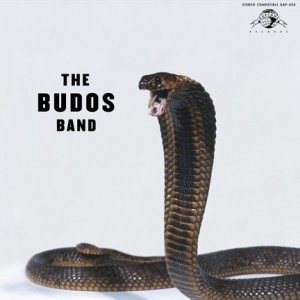 Artist: The Budos Band
Artist: The Budos Band



 Artist: Devo
Artist: Devo Artist: Quincy Jones et al.
Artist: Quincy Jones et al.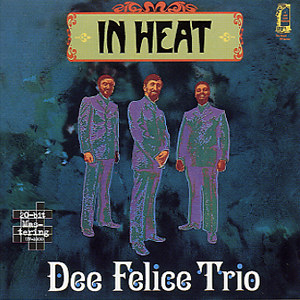 Artist: Dee Felice Trio
Artist: Dee Felice Trio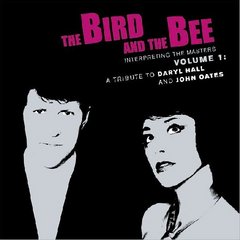 Artist: The Bird & The Bee
Artist: The Bird & The Bee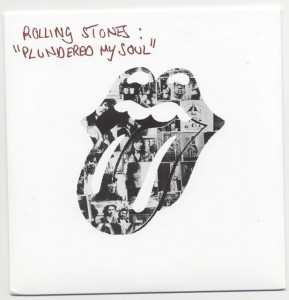 Artist: The Rolling Stones
Artist: The Rolling Stones Artist: The Bad Plus Joined by Wendy Lewis
Artist: The Bad Plus Joined by Wendy Lewis Live at the Artists’ Quarter, Saturday June 12th, 2010
Live at the Artists’ Quarter, Saturday June 12th, 2010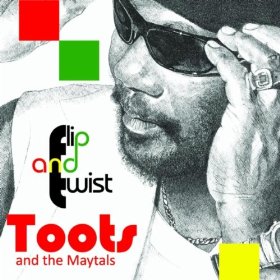 Artist: Toots & The Maytals
Artist: Toots & The Maytals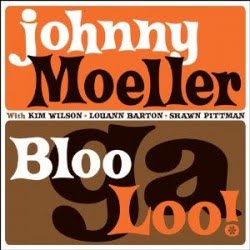 Artist: Johnny Moeller
Artist: Johnny Moeller